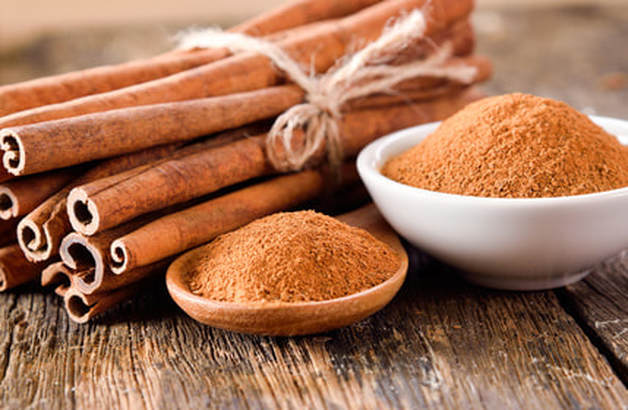|
By: Benish Syed, P.H.Ec. Fall is officially here and that means you’ll be smelling cinnamon at every café and coffee shop. Cinnamon is a pantry essential in many households because of its warm smell, taste, and versatility. Cinnamon can be added to everything from lattes to cakes, and even curries! But did you know that cinnamon also has several health benefits? Read on to find out more about cinnamon as well as its health benefits. Where does cinnamon come from?
Cinnamon comes from the inner layer of bark of derived from different species of the Cinnamomum plant. It is known for its woody yet sweet and fruity taste. There are several varieties in cinnamon but the two main ones are ceylon and cassia. Ceylon cinnamon is primarily produced in Srilanka while cassia cinnamon is found in Indonesia, India, and China. In North America, the majority of the cinnamon available to consumers is cassia cinnamon. What are the health benefits of cinnamon? Cinnamon is known as an antioxidant, and therefore, has anti-inflammatory properties. For this reason, it is used in the form of traditional herbal medicine to help individuals with congestion, bronchitis, and gastrointestinal problems. Cholesterol and Diabetes control Based on small studies conducted on humans and lab studies on mice, cinnamon is believed to be helpful in glucose transport, insulin sensitivity and decreased inflammation. Furthermore, one US-based study indicates that small amounts of cinnamon help in the reduction of blood sugar levels, LDL cholesterol, total cholesterol as well as triglycerides. Anticancer properties According to lab studies, the active compound in cinnamon, cinnamaldehyde, may have anticancer properties as it works as an antioxidant and protects the human body at the cellular level. In addition to that, it may control angiogenesis (development of new blood vessels), a process which is connected to the multiplication of cancerous cells. Mitigation of factors associated with Dementia and Alzheimer’s Once again, the antioxidant properties of cinnamon may work to slow down or lessen the formation of plaques associated with dementia and Alzheimer’s disease. Moreover, cinnamon may have the ability to block and/or reverse the formation of tau proteins (which are largely present in neurons). High numbers of tau proteins in the brain and mutated tau proteins negatively impact neural functioning and may even cause cell death. Although research indicates that cinnamon may help improve health in a variety of areas, this does not mean that consumption of cinnamon tablets or medicines will improve heath outcomes. This is because it is too early in the scientific process to come to such a conclusion. Also, it is important to note that the research pertaining to cinnamon talks about consuming small amounts of cinnamon. Large amounts of cinnamon, especially cassia cinnamon, may cause or aggravate liver problems as it contains a chemical by the name of coumarin. Sources: https://www.ncbi.nlm.nih.gov/pmc/articles/PMC2901047/ http://care.diabetesjournals.org/content/26/12/3215 https://nccih.nih.gov/health/cinnamon http://guidelines.diabetes.ca/browse/chapter21 http://www.eatrightontario.ca/en/Articles/Cooking-Food-Preparation/How-to-cook-with-Spices.aspx http://www.aicr.org/enews/2015/11-november/enews-fall-spices-for-cancer-prevention.html?_ga=2.261884805.944342740.1507085151-1002949120.1506475928
0 Comments
Your comment will be posted after it is approved.
Leave a Reply. |
The Ontario Home Economics Association, a self-regulating body of professional Home Economists, promotes high professional standards among its members so that they may assist families and individuals to achieve and maintain a desirable quality of life. Categories
All
Archives
April 2024
|
|
Subscribe to our mailing list
|
|
Unsubscribe from our mailing list
|
Copyright © 2023 Ontario Home Economics Association (OHEA). All Rights Reserved.



 RSS Feed
RSS Feed